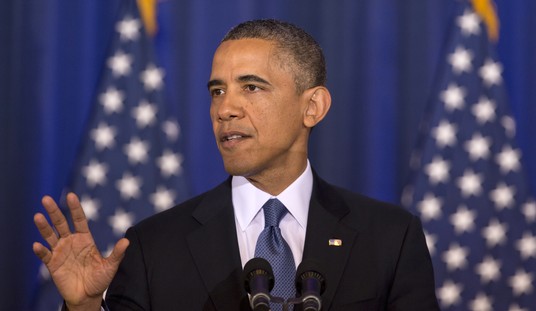While most space headlines have focused on Tourism or the major probes to the planets, a potentially significant issue was making its way unnoticed underneath the fold. Wall Street OTC says reports on the formation of three asteroid mining organizations: “The Asteroid Mining Company” (aka Planetary Resources), Deep Space Industries (DSI), and NASA.”
In fact, the ill-fated Ares spacecraft which blew up at Wallops Island carried the Arkyd 3, “a space-testing platform dedicated to test Planetary Resources’ telescope systems for further space exploration.” It was in short, a prospecting device. “Planetary Resources plans to rebuild and re-launch Arkyd 3 in 9 months time.”
Future historians may remember the early 21st century not for Obamacare or Amnesty, or even the War on Terror as much as for the first beginnings of a new era in economics. There’s a long way to go yet, but the development of outer space is no longer a fantasy. It is promising enough to attract real money.
As in all mining activities, the validity of claims will be a key issue. Claim jumping, mineral rights, and all the rest are all bound to the question of who can own property in outer space. That must be resolved. “A bill that would grant property rights and other protections for commercial asteroid mining ventures received a mixed reception at a hearing of the U.S. House Science space subcommittee Sept. 10.”
A bill that would grant property rights and other protections for commercial asteroid mining ventures received a mixed reception at a hearing of the U.S. House Science space subcommittee Sept. 10.
H.R. 5063, the American Space Technology for Exploring Resource Opportunities in Deep Space (ASTEROIDS) Act, would grant U.S. companies the rights to resources they extract from asteroids. The bill would also allow companies to take legal action if they suffered “harmful interference” during those activities by other entities under U.S. jurisdiction. …
Joanne Gabrynowicz, professor emerita of space and remote sensing law at the University of Mississippi. “Strictly from reading the text, and based on legal knowledge, it definitely needs work.”
Gabrynowicz said she was concerned about the use of the term “harmful interference” in the bill. While the phrase is used in accords like the Outer Space Treaty, it refers to exploration activities by nations, not private entities. “Harmful interference has never been used that way in the treaties. It’s a completely novel application of that term of art,” she said. That, she said, could raise questions about what constituted such interference.
She added that international legal opinion is divided on whether an entity that extracts space resources then owns those resources, ownership that the bill would recognize. “What we are talking about is resource extraction, which is a very volatile and contentious issue at the international level,” she said. “There will be a great deal of political and legal discussion catalyzed by this.”
It’s not attracting much attention yet, but it may before too many more years. The stakes are potentially sky high. Whereas space activity in the mid-20th century focused around Cold War rivalries the new Space Race is fueled by the technological possibilities that has made the Solar System the new frontier. Twentieth century space was about spending billions but twenty first century space will be about making quadrillions.
As the Wall Street OTC article suggests, the new companies are in a phase of money raising, prospecting and technology development whose ultimate payoff are mineral resources on an absolutely colossal scale. Billionaire entrepreneurs and even celebrities like James Cameron are tentatively nosing into the ring.
In 1997 it was speculated that a relatively small metallic asteroid with a diameter of 1.6 km (0.99 mi) contains more than $20 trillion USD worth of industrial and precious metals. A comparatively small M-type asteroid with a mean diameter of 1 kilometer (0.62 mi) could contain more than two billion metric tons of iron–nickel ore, or two to three times the annual production of 2004. The asteroid 16 Psyche is believed to contain 1.7×1019 kg of nickel–iron, which could supply the world production requirement for several million years. A small portion of the extracted material would also be precious metals.
Although Planetary Resources says that platinum from a 30-meter long asteroid is worth 25–50 billion USD,[50] an economist remarked that any outside source of precious metals could lower prices sufficiently to possibly doom the venture by rapidly increasing the available supply of such metals.
Development of an asteroid-orbit manipulation infrastructure could offer an irresistible return on investment.[52] However, astrophysicists Carl Sagan and Steven J. Ostro raised the concern that altering the trajectories of asteroids in nearby interplanetary space could cause a catastrophic collision with Earth. These scientists conclude that stringent controls on the misuse of orbit-engineering technology be instituted.
The prospect of space economics is also likely to give rise to a new and even more powerful “Green” opposition which will move heaven and earth to stop mankind from despoiling the cosmos. The scales of economic activity it opens up absolutely beggars the imagination.
Nobody yet knows what the economics of space mining will be. A confluence of emerging technologies, including fusion, artificial intelligence and others, may make mining asteroids perfectly feasible, or may uncover a snag which will take a long time to overcome. Eventual development would fundamentally transform human lifestyles. For one, most of the work will be performed by robots, including self-replicating machines. But then that would be true by then of anything. A society technological enough to mine an asteroid can design a robot to flip a hamburger. They’re already working as security guards at Microsoft.
[jwplayer mediaid=”40557″]
What we regard as “work” may fundamentally change. But whatever the future may hold, its uncertainties and promises are our birthright. We can look back at the past, but we can’t live in it. We are condemned to go on. Activists will do their best to restrict space activity to “official” organizations or declare the ownership of space to be illegitimate but human beings from the beginning of history have always sought the next valley.
That is likely to continue.
What is more probable is that activists will find some way to tax the new activity. Human rivalries, now confined to earth, may eventually move heavenward. Some things will be different; some things will remain the same. If we don’t blow up our world, the odds are good that a monument may someday be erected to commemorate the start of humanity’s offworld career. And on the monument’s gleaming base, inscribed in a 21st century material as yet unknown, may be a very 20th century poem.
We’ve tried each spinning space mote
And reckoned its true worth:
Take us back again to the homes of men
On the cool, green hills of Earth.The arching sky is calling
Spacemen back to their trade.
ALL HANDS! STAND BY! FREE FALLING!
And the lights below us fade.Out ride the sons of Terra,
Far drives the thundering jet,
Up leaps a race of Earthmen,
Out, far, and onward yet —We pray for one last landing
On the globe that gave us birth;
Let us rest our eyes on the fleecy skies
And the cool, green hills of Earth.
Recently purchased by readers:
Eleven Minutes, A Novel by Paul Coelho
The Diabetes Solution, How to Control Type 2 Diabetes and Reverse Prediabetes Using Simple Diet and Lifestyle Changes–with 100 recipes
Why We Lost, A General’s Inside Account of the Iraq and Afghanistan Wars
Plochman’s Kosciusko Mustard, Spicy Brown, 9-Ounce Spoonable Barrels (Pack of 12)
Crane Adorable Ultrasonic Cool Mist Humidifier, with 2.1 Gallon Output per Day Dragon figure
Casio Men’s WS210H-1AV
Itoya Art Profolio Storage/Display Book 4 inch x 6 inch 24
Recommended:
Above it All, [Kindle Edition], a helicopter pilot in Vietnam
13 Hours, The Inside Account of What Really Happened In Benghazi
Tower of the Sun, Stories From the Middle East and North Africa [Kindle Edition] by Michael Totten
Keurig K75 Single-Cup Home-Brewing System with Water Filter Kit, Platinum
The Walking Dead, 5 Seasons 2014
Did you know that you can purchase some of these books and pamphlets by Richard Fernandez and share them with you friends? They will receive a link in their email and it will automatically give them access to a Kindle reader on their smartphone, computer or even as a web-readable document.
The War of the Words for $3.99, Understanding the crisis of the early 21st century in terms of information corruption in the financial, security and political spheres
Rebranding Christianity for $3.99, or why the truth shall make you free
The Three Conjectures at Amazon Kindle for $1.99, reflections on terrorism and the nuclear age
Storming the Castle at Amazon Kindle for $3.99, why government should get small
No Way In at Amazon Kindle $8.95, print $9.99. Fiction. A flight into peril, flashbacks to underground action.
Storm Over the South China Sea $0.99, how China is restarting history in the Pacific
Tip Jar or Subscribe or Unsubscribe to the Belmont Club










Join the conversation as a VIP Member